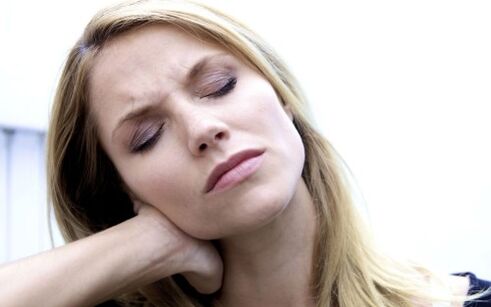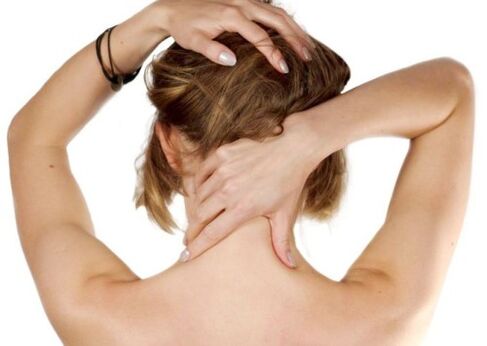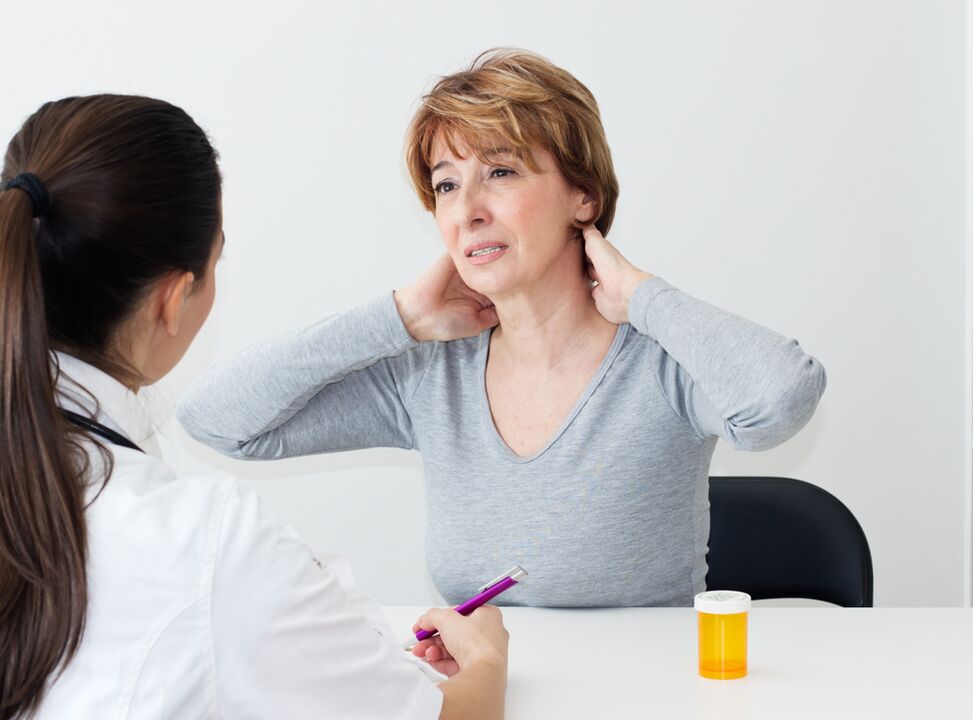According to medical observations, 50% of people over the age of 25 suffer from mild cervical osteochondrosis. Such a clinical picture emerges over the years, and the percentage of patients increases every year. Signs of cervical osteochondrosis are attributed to fatigue and physical exertion, thereby postponing treatment on the back burner. A progressive disease is a serious threat to the spine and the whole organism. Reveal the first signs of osteochondrosis in time and do not delay going to the doctor. He will prescribe you a course of treatment and conduct a detailed examination.

What is osteochondrosis?
The relevance of the topic of cervical osteochondrosis and its treatment is difficult to overestimate. Today, this is perhaps one of the main problems of society. As a result of the disease, intervertebral discs and bone tissues are affected. According to statistics, osteochondrosis most often affects office workers, writers, programmers. The disease is dangerous for people with a fixed, sedentary lifestyle. Especially in the thoracic region. This is one of the inactive parts of the body, surrounded by ribs on all sides, which makes it difficult to diagnose.
Causes
Despite medical progress, a clear answer to the question Why does osteochondrosis of the cervical spine occur? has not been found. Based on data from a study of clinical practices, there are several main causes of the disease:
- bad habits, smoking, alcohol, drugs;
- immobile lifestyle;
- intoxication of the body;
- defeat by infection;
- hard daily physical work;
- stress, neuroses;
- spinal column injury;
- wrong shoes - pressure on the spinal column;
- strong cooling of the body;
- lack of a balanced healthy diet;
- age-related changes;
- home medicine treatment;
- heredity.
From the above list, it is clearly seen that there can be many reasons. Therefore, complaints can be received even in adolescence. Treatment of osteochondrosis at an early stage is effective, fast and painless.

The article reveals the basic concepts of cervical osteochondrosis, touches on a comparison with thoracic osteochondrosis. The signs that every person needs to know are described in detail and clearly.
Complete picture of the disease
Signs of osteochondrosis of the cervical spine differ slightly from the signs of the disease in other vertebral regions. The main reason is the proximity of the intervertebral discs and their height. Common causes include pressure in the spinal cord and compression of the nerve roots. This leads to the manifestation of clinical symptoms, sometimes requiring immediate hospitalization.
Most popular features
Pain syndrome
These are aching periodic pains that have a different dislocation. They can be localized in one place, and can affect the skeletal framework as a whole. When the nerve roots are involved in the process, shooting in the extremities is characteristic. Frequent headaches are the cause of spasms of the cervical muscles of the occipital bone. As a result, there is a violation of blood circulation.
Nerve root damage
They stimulate the work of muscles and the innervating effect on the skin of the hands. In this case, you can not lift heavy objects, overstrain physically and do not delay treatment. As a result, you will get complete muscle atrophy.

Numbness of fingers
It usually worries when the disease acquires a stable symptomatology and character. May be accompanied by discomfort in the hands and on the entire surface of the hands. In the advanced stage of osteochondrosis, numbness is a precursor to fainting and headaches. This sign indicates a significant decrease in sensitivity.
Crunch
It limits our movements of the cervical spine and the physical abilities of a person. Reducing the vertebral discs in height is the result of bone growth. The smallest joints in the cervical vertebra are affected.
Loss of coordination and weakness in the body
These are signs due to lesions of the vertebral artery. It passes through its canal, localized in the cervical vertebrae. The development of cervical osteochondrosis stimulates changes in the spinal column and the growth of fibrous tissue. The result is a lack of oxygen and impaired circulation. The head and occipital part of the cerebellum suffer.
Frequent dizziness
They are symptomatic and can be observed in osteochondrosis of the vertebral arteries. A large percentage of patients complain of excruciating headaches similar to migraines. Patients try to get rid of painful symptoms by taking antibiotics and painkillers, which rarely make them feel better. This is a signal of the body about the rapid development and progression of osteochondrosis. Treatment in this case occurs immediately.

Black dots or flickering flies before the eyes
Precursors of a severe headache. With sudden movements, small colored spots and shootings in the head appear. Many confuse this symptom with lack of sleep or fatigue, they drink medications. As a rule, home medicine treatment in this case is always powerless.
Aching chest pain
Some confuse them with heart pains, because they are localized in the region of the heart. Others confuse it with a disease of other internal organs. Doctors urge you not to carry out self-treatment and traditional medicine methods. This leads to serious consequences and difficulty in the examination.
At the first visits to the attending physician, the patient is given a primary diagnosis, a study of the spinal column is carried out, and the degree of its damage is determined. First of all, the doctor examines the human torso, structural features, the contours of the waist and neck, the relief of the muscles, the level of protrusion of the spinous processes. Basically, I examine and establish a diagnosis with the help of my hands, but there are more advanced modern methods:
- CT scan;
- Magnetic resonance imaging;
- radiography.
All methods are good, have their drawbacks and advantages. With their help, you can finally approve or refute the diagnosis. Do not hesitate to consult a doctor. Effective treatment can only occur if medical recommendations are followed.





















